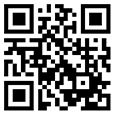一般将来时主要有以下几种表现形式
由助动词shall或will加动词原形构成,shall 用于人称,will用于第二、三人称。除英国外的说英语的国家,在陈述句中,即使在人称一般也用will,在英国也有这种趋势。在口语中,常用shall, will的缩写形式为’ll, 如:i’ll, you’ll等。shall not的缩写式为:shan’t, will not 的缩写式为:won’t.
肯定句:i/we shall/will go.
you/he/she/they will go.
否定句:i/we shall/will not go.
you/he/she/they will not go.
疑问句:shall i/we go?
will you/he/she/they go?
一般将来时用法
(1)一般将来时表示将要发生的动作或情况。
例如:i will(shall) arrive tomorrow.我明天到。
will you be free tonight? 你今晚有空吗?
we won’t (shan’t) be busy this evening. 我们今晚不忙。
(2)在一般将来时的句子中,有时有表示将来时间的状语,有时没有时间状语,这时要从意思上判断是否指未来的动作或情况。例如:
will she come? 她(会)来吗?
we’ll only stay for two weeks. 我们只待两星期。
the meeting won’t last long. 会开不了多久。
(3)在以人称i或we作主语的问句中,一般使用助动词shall,这时或是征求对方的意见(a),或是询问一个情况(b):
a. where shall we meet? 我们在哪儿碰头?
b. shall we have any classes tomorrow?明天我们有课吗?
在这类问句中,近年来也有不少人用will,特别是在美国。例如:
how will i get there? 我怎么去?
(4)be going to+动词原形
a.表示打算、准备做的事。例如:
we are going to put up a building here.我们打算在这里盖一座楼。
how are you going to spend your holidays?假期你准备怎样过?
b.表示即将发生或肯定要发生的事。例如:
i think it is going to snow. 我看要下雪了。
there’s going to be a lot of trouble about this. 这事肯定会有很多麻烦。
c.“will”句型与“be going to”句型,前者表示纯粹将来,后者表示打算、计划、准备做的事情,更强调主语的主观意愿。例如:
tomorrow will be saturday. 明天是周六了。
we are going to visit paris this summer.今年夏天我们打算游览巴黎。
练 习 题
( ) 1. there __________ a meeting tomorrow afternoon.
a. will be going to b. will going to be
c. is going to be d. will go to be
( ) 2. charlie ________ here next month.
a. isn’t working b. doesn’t working
c. isn’t going to working d. won’t work
( ) 3. he ________ very busy this week, he ________ free next week.
a. will be; is b. is; is
c. will be; will be d. is; will be
( ) 4. there ________ a dolphin show in the zoo tomorrow evening.
a. was b. is going to have
c. will have d. is going to be
( ) 5. –________ you ________ free tomorrow?
– no. i ________ free the day after tomorrow.
a. are; going to; will b. are; going to be; will
c. are; going to; will be d. are; going to be; will be
( ) 6. mother ________ me a nice present on my next birthday.
a. will gives b. will give
c. gives d. give
( ) 7. – shall i buy a cup of tea for you?
–________. (不,不要。)
a. no, you won’t. b. no, you aren’t.
c. no, please don’t. d. no, please.
( ) 8. – where is the morning paper?
– i ________ if for you at once.
a. get b. am getting
c. to get d. will get
( ) 9. ________ a concert next saturday?
a. there will be b. will there be
c. there can be d. there are
( ) 10. if they come, we ________ a meeting.
a. have b. will have
c. had d. would have
( ) 11. he ________ her a beautiful hat on her next birthday.
a. gives b. gave
c. will giving d. is going to giving
( ) 12. he ________ to us as soon as he gets there.
a. writes b. has written
c. will write d. wrote
( ) 13. he ________ in three days.
a. coming back b. came back
c. will come back d. is going to coming back
( ) 14. if it ________ tomorrow, we’ll go roller-skating.
a. isn’t rain b. won’t rain
c. doesn’t rain d. doesn’t fine
( ) 15. – will his parents go to see the terra cotta warriors tomorrow?
– no, ________ (不去).
a. they willn’t. b. they won’t.
c. they aren’t. d. they don’t.
( ) 16. who ________ we ________ swimming with tomorrow afternoon?
a. will; go b. do; go
c. will; going d. shall; go
( ) 17. we ________ the work this way next time.
a. do b. will do
c. going to do d. will doing
( ) 18. tomorrow he ________ a kite in the open air first, and then ________ boating in the park.
a. will fly; will go b. will fly; goes
c. is going to fly; will goes d. flies; will go
( ) 19. the day after tomorrow they ________ a volleyball match.
a. will watching b. watches
c. is watching d. is going to watch
( ) 20. there ________ a birthday party this sunday.
a. shall be b. will be
c. shall going to be d. will going to be

